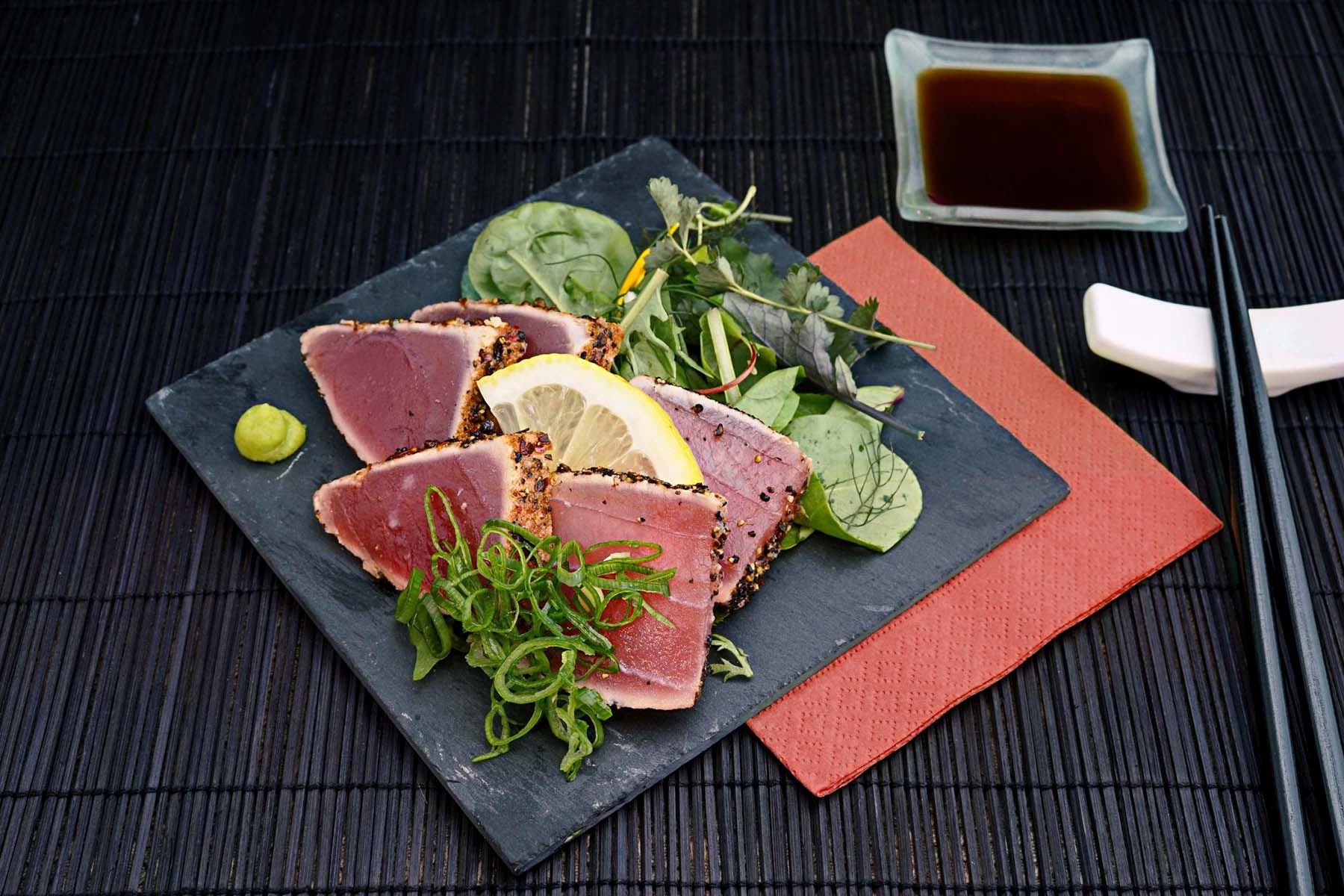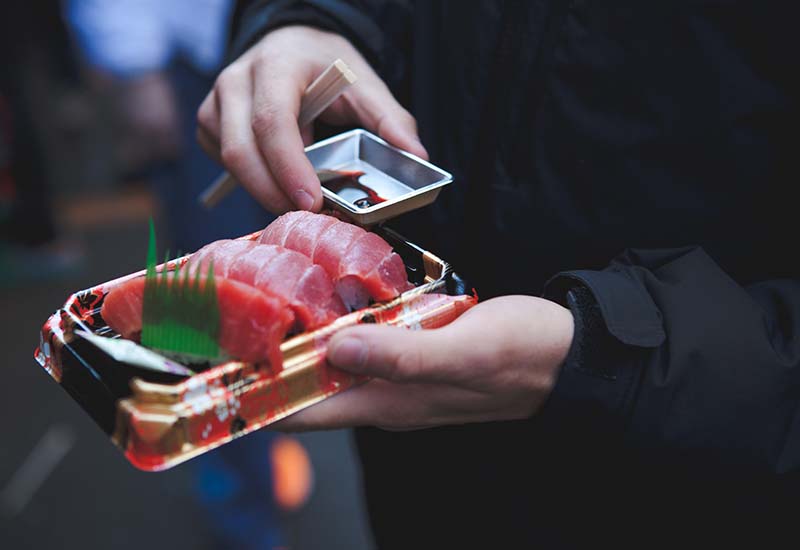Last year, Indonesia produced 16% of the world’s tuna, making it the largest tuna supplier in the world.

Tuna is one of the most common items served in Japanese restaurants. The tuna may be local farm-raised or wild-caught tuna, or it may just be tuna from Indonesia.
Last year, Indonesia produced 16% of the world’s tuna, making it the largest tuna supplier in the world. So, it is hardly surprising that the tuna sushi that is savoured at your local Japanese restaurant is actually caught in Indonesian waters.
Half of Indonesia’s catch of tuna goes to the US, either as frozen whole fish or fillets and one-quarter of the catch goes to Japan, the country that brought sushi to the international gastronomy spotlight. The remainder goes to Australia, Hong Kong, Singapore and South Korea.
As consumers demand more for responsibly sourced seafood, Indonesian seafood suppliers are trying to address concerns of depleting seafood, overfishing and overall damage to the ocean. They have been working for years in making the seafood supply chains more transparent in addressing such concerns.
 Efforts to improve perceptions
Efforts to improve perceptions
Amongst the effort taken is making real-time data on the location of all ships and containers on Indonesian waters visible to the public, making it the first fishing nation to do so. This helped to improve perceptions of human trafficking, poor employment practices and illegal fishing that have been associated with the fishing sector in the region.
Under Indonesia’s Marine Affairs and Fisheries minister Susi Pudjiastuti, vessels caught fishing illegally in its waters risk being sunk, or they may possibly be blown up. The dramatic crackdown has worked in improving the country’s reputation of zero tolerance in illegal fishing.
In efforts of curtailing overfishing, Indonesia now hauls in its catch by pole and handline fishing. The fish is caught one by one, eliminating the risk of hauling in an unintended catch. This a method that Japan champions in, and Indonesia is now second to do so. Some 20% of the Indonesian tuna is caught this way.
Experts have applauded its efforts in regulation illegal fishing as well as overfishing, with recommendations for the similar to be applied in the domestic fishing industry of the country.
Set in the right direction, Indonesia can now hand the tuna on the plate for the rest of the world to enjoy, ethically.
Source: SCMP
Images are from stock photos









